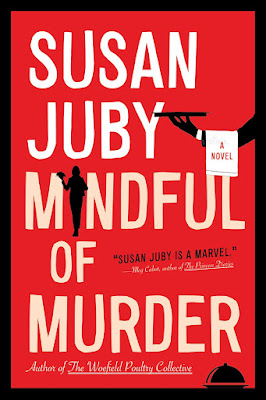Two cases are the focus of the book. They dominated Slotnick’s life and the tabloids of NYC in the mid-1980’s.
Bernhard “Bernie” Goetz, the “subway vigilante”, shot 4 young black men in a NYC subway car in 1985.
John “the Teflon Don” Gotti was tried in a racketeering case under the Federal RICO statute alleging a collection of crimes. While there were seven defendants it was inevitable it would be called the Gotti case. Slotnick was not Gotti’s lawyer but effectively led the defence team. (Slotnick’s partner Bruce Cutler represented Gotti while Slotnick represented another mobster, John Carneglia.)
Each case was fiction come to real life. Patterson and Wallace tell them well. The cases are interwoven into the story of Slotnick’s life which will be a further post.
Goetz and Gotti presented a common problem for Slotnick. Each loved, even craved attention.
Goetz was eager to provide interviews to any member of the media who wanted to talk to him. Criminal defence lawyers are averse to having clients talk to the media. The risks of being misquoted or goaded into dangerous comments or inflaming the public are too great. Goetz did not care. He was going to be the centre of attention. His moment of fame had come.
Gotti had come from relative obscurity in the Gambino crime family to lead the organization. He was flamboyant in dress and manner. He was carefully barbered. His suits were beautifully made. He was constantly on display in the city.
At the same time there was a constant touch of menace about him befitting his status as a crime lord. No one was going to tell him to assume a low profile.
As evident from his reaction to being attacked, Slotnick equally relished media and public attention. He wore $2,500 custom made suits (he bought half a dozen each year) and cultivated journalists.
You need a special personality to be a Slotnick. It is a high wire act for a lawyer courting media. You have to provide enough information to enable compelling stories but not too much that would compromise your client’s case. Most defence lawyers opt for the easier route of little to no comment especially in Canada. On the occasions I have had a case drawing media attention my remarks are limited. I am willing to take a more public approach in some civil cases.
New York City is different. Outsize personalities for criminal lawyers are prized.
For Goetz, though Slotnick normally welcomed media attention, he recognized it was in Goetz’s best interests to minimize attention. Goetz had been fortunate he was only charged by the first grand jury with possessing an illegal weapon. Soltnick turned down interview after interview seeking to lower public attention to the case in the city. His efforts were unavailing as Goetz kept talking.
A second grand jury was impanelled. Goetz wanted to testify. Slotnick disagreed. Goetz was only convinced when Slotnick arranged for another criminal defense lawyer, Ben Brafman, to do a mock cross-examination. After 4 hours of grilling Goetz’s ardor to appear before the grand jury had cooled.
Slotnick sought to manipulate public opinion by offering to have Goetz testify if the questions were limited to two days - the day of the shooting and the day he had returned to NYC to give two guns to a neighbour. When the District Attorney turned down the offer Slotnick advised the media that Goetz had offered to testify and the district attorney “refused our testimony”.
Ordinarily I would have thought the gambit would have had little risk for the defence but I expect the District Attorney must have considered accepting the offer. Based on his public and police statements Goetz might have given evidence that could convict himself.
In the end he did not go before the second grand jury which charged him with 4 counts of attempted murder and multiple other offences.
It is ironic that Slotnick, in the Gotti case, devoted a great deal of time to protesting that pre-trial publicity was prejudicing the rights of the defendants to a fair trial. What Slotnick wanted was publicity orchestrated by him. Goetz and Gotti were beyond his control.
With Gotti’s immense ego the defense team had to deal with Gotti’s determination to manage the defence.
Slotnick’s greatest challenge in the Gotti case was the sprawling nature of the charges. The trial took seven months. It was filled with colorful even histrionic moments.
Slotnick was smooth in and out of the courtroom. He got attention. He commanded courtrooms but was not over the top as shown in the most dramatic moment of the trial.
The bombastic Cutler closed his opening:
He held the indictment over his head and called it “a rancid stew with rotten meat that makes you retch and vomit.”
He was shouting now.
Then, pausing over a trash can, Cutler slam-dunked the indictment into it.
“It’s garbage,” Cutler bellowed as spectators gasped. “That’s where it belongs.”
Slotnick’s opening followed Cutler:
For the moment, he would play good copy to Cutler’s bad cop. As Stuart Slotnick watched from the gallery, his father, one hand in his pocket, strolled casually across the room to the trash can where the government’s indictment languished. Barry Slotnick peered in. Then he reached down and fished out the document. He calmly dusted it of and put it back on the defense table.
He then echoed Cutler’s comments that the prosecution’s case was “garbage”.
Cutler wrote a vivid memoir I read 15 years ago. My review will be another post in the series of posts on Slotnick.
Just discussing the issues related to publicity and an example of trial drama filled this post. Each trial was a circus. I did wonder what the clients thought of Slotnick claiming the public spotlight.






